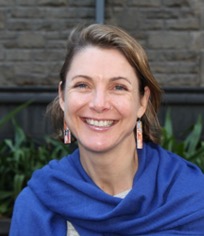Selected Publications
- Anderson, B., Grove, K., Rickards, L. and Kearnes, M. (2020) Slow emergencies: Temporality and the racialized biopolitics of emergency governance. Progress in Human Geography 44: 621-639.
- Preston, B. L., Rickards, L., Fünfgeld, H. and Keenan, R. J. (2015) Toward reflexive climate adaptation research. Current Opinion in Environmental Sustainability 14: 127-135.
- Rickards, L. and Watson, J. (2020) Research is not immune to climate change. Nature Climate Change 10 (3): 180-83.
- Steele, W. and Rickards, L. (2021) The Sustainable Development Goals and Higher Education: A Transformative Agenda? Palgrave Macmillan.
- Waters, E., Webber, S., Keele, S., Osborne, N., Rickards, L. and O’Donnell, T. (2023) Reimagining climate change research and policy from the Australian adaptation impasse. Enviro. Sci. & Policy, 142: 144-152.
FRIAS Project
Well-adapted sustainability; sustainable adaptation
Lauren will work with Professor Dr. Hartmut Fünfgeld, Chair of Geography of Global Change, to explore the relationship between institutional approaches to climate adaptation and sustainability transformations in order to identify synergies and tensions. While it is increasingly well recognised that urgent action is needed on both sustainability (including greenhouse gas mitigation, biodiversity conservation, waste management and pollution reduction) and climate change adaptation/resilience, the complex, multifaceted relationships between the two goals and their practical implications has not been explored. This research will help make sustainability efforts more resilient, and climate resilience efforts more sustainable, by developing a new conceptual framework, research agenda and pilot study. The latter will examine the assumed and practical relationships between environmental sustainability and climate change adaptation policy making and practices. A comparative research design will be used to enable analysis of the relationships at different scales, from the individual and organisational to the national and international. The national scale will be explored using a comparison of Australia and Germany. Overall, the project will identify opportunities for learning between the sustainability and adaptation worlds – such as the introduction of scenario thinking to sustainability policy, and recognition of unsustainable outcomes as an indicator of maladaptation – and for integrating the two more successfully.
